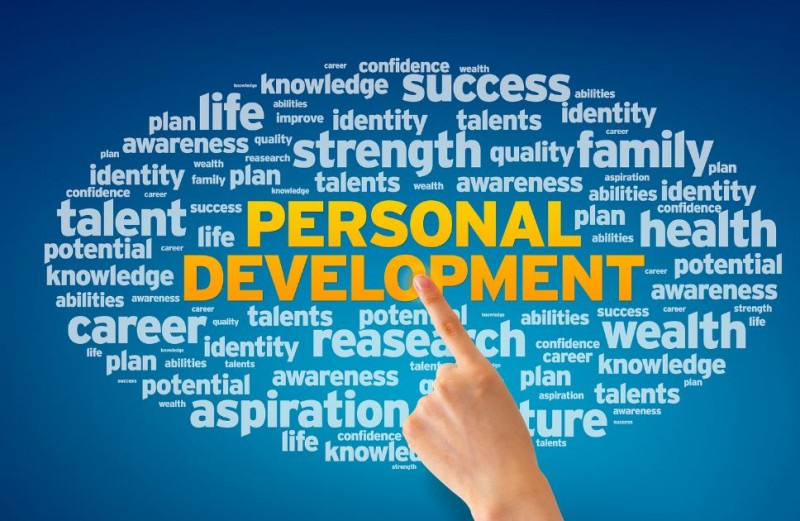
Introduction
In the journey of personal development, setting and achieving goals plays a pivotal role. Whether it's about advancing in your career, improving relationships, or enhancing overall well-being, effective goal setting empowers individuals to turn their dreams into reality. In this article, we will explore some key strategies for setting goals that are not only achievable but also motivational, inspiring, and conducive to personal growth.
1. Assess Your Current Situation
Before diving into goal setting, take a moment to reflect on your current circumstances. Identify areas of your life that you want to improve, and evaluate your strengths and weaknesses. Understanding where you stand today will help you create realistic and relevant goals that align with your life's direction.
2. Set SMART Goals
SMART stands for Specific, Measurable, Achievable, Relevant, and Time-bound. When setting goals, make sure they are clear, quantifiable, attainable, relevant to your aspirations, and have a deadline. SMART goals provide a well-defined roadmap, making it easier to track progress and stay motivated.
3. Break Down Long-term Goals into Short-term Milestones
Long-term goals can be overwhelming, but breaking them down into smaller, manageable milestones can make the process more achievable. Set short-term goals that lead to the fulfillment of your long-term objectives. Celebrate each milestone reached, as it provides encouragement and a sense of accomplishment.
4. Visualize Success
Visualization is a powerful tool for effective goal setting. Create a clear mental image of yourself achieving your goals. Visualizing success stimulates your subconscious mind, making you more determined and confident in your abilities to succeed.
5. Develop an Action Plan
An action plan outlines the specific steps you need to take to accomplish your goals. Break each goal into actionable tasks and prioritize them based on their importance and urgency. Regularly review and update your action plan as you progress.
6. Stay Persistent and Flexible
While striving to achieve your goals, expect obstacles and setbacks. Stay persistent and don't let challenges deter you. At the same time, be flexible and open to adjusting your approach when needed. Adaptability is essential for long-term success.
7. Surround Yourself with Positive Influences
The people you surround yourself with can significantly impact your goal-setting journey. Surround yourself with individuals who inspire and motivate you. Seek guidance and support from mentors or like-minded individuals who share similar ambitions.
8. Monitor and Track Progress
Regularly monitoring and tracking your progress is crucial for staying on course. Use tools like journals, apps, or calendars to log your achievements, setbacks, and lessons learned. This practice will help you stay accountable and focused.
9. Practice Self-Compassion
In the pursuit of personal development, remember to be kind to yourself. Don't be too hard on yourself for occasional slip-ups or delays. Treat yourself with the same compassion and understanding that you would offer to a friend facing challenges.
10. Celebrate Achievements
Celebrate your achievements, no matter how small they may seem. Acknowledging your successes reinforces positive behavior and boosts motivation to continue striving for more significant accomplishments.
11. Continuously Learn and Grow
Personal development is an ongoing journey. Embrace a growth mindset and seek opportunities for learning and self-improvement. Engage in activities that expand your knowledge, develop new skills, and challenge your comfort zone.
12. Foster a Supportive Environment
Create an environment that supports your personal development goals. Surround yourself with individuals who encourage and uplift you. Design your physical space to promote focus, creativity, and inspiration.
13. Practice Self-Reflection
Regular self-reflection allows you to gain insights into your progress, strengths, and areas for improvement. Set aside time for introspection, journaling, or meditation to connect with your inner thoughts and emotions.
14. Embrace Failure as a Learning Opportunity
Failure is not a setback but an opportunity for growth. Embrace failure as a chance to learn, adapt, and refine your approach. Use setbacks as stepping stones to propel yourself forward.
15. Stay Committed to Your Goals
Commitment is the cornerstone of effective goal setting. Stay dedicated to your goals, even when faced with challenges or distractions. Remind yourself of your purpose and the meaningful impact achieving your goals will have on your life.
Conclusion
Personal development is a transformative journey that requires effective goal setting. By assessing your current situation, setting SMART goals, breaking them down into milestones, visualizing success, developing an action plan, and staying persistent and flexible, you can create a roadmap to personal growth. Surround yourself with positive influences, monitor and track your progress, and practice self-compassion along the way. Remember to celebrate your achievements, continuously learn and grow, and foster a supportive environment. Embrace self-reflection, learn from failure, and stay committed to your goals. Now, take the first step towards your personal development journey and unlock your true potential.
Celebrating Hollywood Icon Tom Cruise's Birthday on July 3rd
Kylie Jenner And Her Daughter Stormi Donates Toys At Target Fun
The Healing Power of Forgiveness: Transforming Mental Health